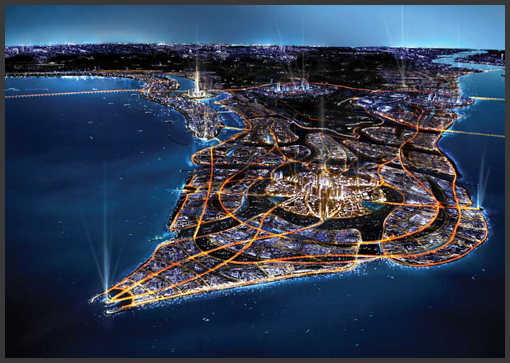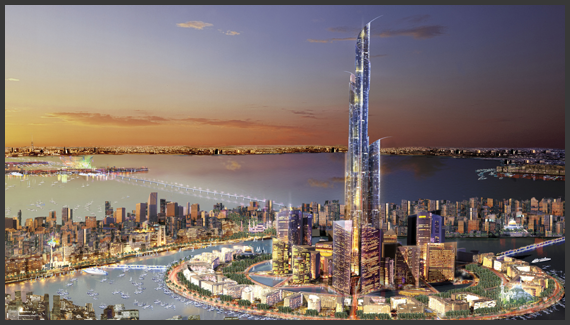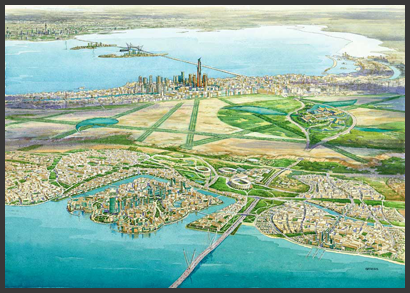Invest in Kuwait, Kuwait Minister of Commerce and Industry
Kuwait Economy, Kuwait minister of commerce and industry, His Excellency Ahmad Al-Haroun – Video Interview
There hasn’t been a better time to invest in Kuwait. As I have previously mentioned, Kuwait ranked 27th globally in the “Protecting Investors Index”(invest in Kuwait) that was issued by the World Bank, which is better than most OECD countries.
It is well known that governemnt expenditures have a direct impact on the local market by restarting, among other things, stagnant economic activities. According to the Five-year development plan, which was was approved last month by the National Assembly, expenditures on projects by the government will total 4.5 billion KD ($15.8 billion). Therefore, I see that our economy is heading in the right direction and I’m personally very optimistic about the future.
How do you foresee a role of oil in Kuwait’s Economy and is the oil dependence a cause of concern to you – how would you assess Kuwait’s diversification strategy?

What are your strategic goals for 2010, in other word, what is the agenda of the ministry for 2010-2011?
Our strategic goals for 2010 is the implementation of the Ministry of Commerce and Industry ’s part of what has been included in The Five-year development plan and the government’s work program. This in addition to the enhancement of all the services that are provided by our ministry, whether administratively or technically (e-gov, …). Kuwait is preparing a strategy to establish new free trade (FTZ) and logistical zones.
Describe current situation – to what degree have you been able to accomplish the strategy – can you give us an overview of this strategy?
New free trade zones (FTZ) and logistical zones are part of the plan adopted by the governemnt in order to realize the sublime goal that has been expressed by his Highness the Amir, which is to transform Kuwait into a commercial and finnacial center for the region in the near future. Having said that, there is no doubt that we have benefited tremendouly from our experience with our first FTZ; it gave us the vision on how to address all the shortcomings that accompanied it. As for logistical zones, Kuwait is a natural logistics hub, that can cater to many of the region’s needs. We have already, in this particular area of expertise, two very successful companies (Agility and KGL) that are dealing in multi-billion contracts and competing successfully not only regionally, but internationally as well.

Has the global economic downturn made it more difficult to attract companies? Ideally what would you have had done, if you had the power?
The global economic downturn has impacted Kuwait like any country in the world, which caused the economy to slow down tremendously. However, the government stepped in quickly to restore confidence in the market and to get the wheel of the economy turning again. To that end, the government has taken the necessary measures in order to stabilize the economy and create the proper environment for business and investment. On the other hand, However, if we were to look at the World Bank’s Protecting Investors Index, we will see that Kuwait has ranked 27 globally, which is better than most OECD countries. Therefore, the governemnt is undertaking all the appropriate measures in order restore confidence and attract foreign companies. Having said that, I need to add that Kuwait doesn’t lack capital, therefore, what we are looking to be provided by foreign companies are mainly their admnistrative and technical expertise, which we really can benfit from.
How do you assess your communication strategy especially aimed toward technologically advanced companies – do you feel more should be done to create awareness of investment opportunities in Kuwait?
We have to admit that our communication strategy has been lacking, however, this issue is right now under serious consideration in order to formulate a concrete and clear channel of communication with the outside world and to promote not only our investment opportunites in projects, but the country as a whole.
What has been your biggest challenge to-date?
The element of time has been our biggest challenge, because as you know “time is money”. What I mean by that is, as I have mentioned earlier, when the global recession tidal wave reached Kuwait, it was combined with local speculative investment in equity and real estate. This has led to a decline in the stock market and a severe credit crunch, which caused the economy to slow down tremendously. Therefore, the biggest challenge we were faced with is how to restore confidence in the market in order to get the wheel of the economy turning again. Thank God I believe we succeeded in that mission.
The four-year development plan that was approved in February by the Kuwaiti National Assembly is worth KD 30.8 billion ($108 billion). The plan contains 230 policies, 130 of them deal with the social aspects and the human development, while the others tackle the economic aspects, management, information technology, asserting that the plan designs to achieve transparency, integrity and accountability. How do you see this plan yourself?
Personally, I’m very optimistic about its prospects; it is an ambitious plan and it aims at diversifying the economy by creating a true partnership between the government, through its capital expenditure, and the private sector, through its increased participation in economic activities , which will increase its of the GDP. Furthermore, the plan includes lots of Mega Projects, such as: a new business hub (Silk City) with estimated cost US$77bn, a major container harbor and a 25km causeway, a railway and metro system, etc…). In turn, all of these Mega Projects will create Mega activities in products trade and services, which will all be overseen by the Ministry of Commerce and Industry. Kuwait is mulling plans to develop a new Companies Law to update its current legislation that was issued nearly 50 years ago – (independent financial regulator etc.)
|
Get the Flash Player to see this player.
|
Can you give us an overview of this new legislation? What is the meaning for an international investor and Kuwait?
At present time how difficult is it to invest in Kuwait?
There hasn’t been a better time to invest in Kuwait. As I have previously mentioned, Kuwait ranked 27th globally in the “Protecting Investors Index” that was issued by the World Bank, which is better than most OECD countries. This fact combined with all the incentives that are offered by The Foreign Direct Investment Law No. 8 of 2001, which came into force 17 April 2001 and allows 100% foreign ownership in many economic activities and projects, makes Kuwait an attractive destination for investments.
What advantages does Kuwait offer – over some other gulf countries specially when Kuwait although slashing the tax rate on foreign investor profits from 55% to 15% is still remains a no tax free country?
Kuwait has a strategic geographic location, which is unique in the region, situated between three major economies it has many potentials to become a trade center and a trade route, bringing back the glories of the historic Silk Way. Furthermore, you can say that Kuwait is a natural logistics hub, that can cater to many of the region’s needs. When things settle in Iraq we see many potentials for investment, among which the logitical sector will be very prominent through serving Iraq, especially the southern region. Emir has a vision to turn Kuwait into a financial and commercial center and that this will open a number of opportunities for Kuwaitis.
In your opinion, what needs to be done to fulfill this vision?
The will to execute the Five-year development plan that the government has put forward; it really has the potential to transform HH the Amir’s vision into reality. The aforementioned plan hold the potential for Kuwait to regain the role that it has played in the past as a trade hub and a financial center for the whole region.
When stepping down, what would you like to have achieved?
I wish that during my tenure, I will be able to oversee the implementation of all the pertinet economic laws that make the vision of His Higness the Amir a reality.
Final message to our viewers and readers?
Kuwait has a very rich cultural tradition and heritage, furthermore, it is a very hospitable country. Anybody who visits Kuwait and stays in it, even for a couple of days, will be submerged in its hospitality and will feel a great deal of its social attraction. We are an open country and foreigners are always welcome. We have many high-end malls, where you find anything your heart desires, from brand names to luxury restaurants. In addition, all international hotels are available here. We have all kind of entertainment and sports facilities (Tennis courts, gold courts) and some of the best sea resorts in the region. All of this and a great deal of freedom as long as it doen’t contradict our cultural tradition and heritage.